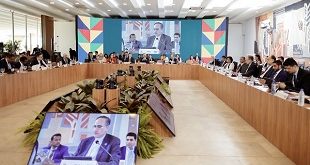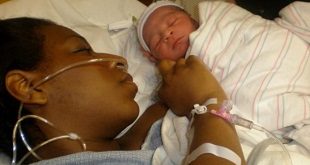
By Mo Yaxye
Dreams from my mother confront reality in the home I didn’t know
Somalia, Somali or Waryaa (as my Kenyan brothers/sisters would say) has been the identity I have been carrying for more than 30 years – an identity that I have come to accept but never understood. I was born in Mogadishu but left at around 4 years old never to return until a sunny morning on July 26. Growing up in Kenya and later in the UK I was constantly reminded of my otherness.
I remember asking my mother why they were calling me Waryaa at school and her reply instilled in me a sense of confidence and pride that became a cornerstone of my legendary self-confidence -if I am allowed to be a little bit immodest. My mum would say, “Well, it’s because you’re better looking than all of them and stand out in the crowd”. She would constantly build in my young mind a sense of pride in being a Somali and coming from this wonderful place called Somalia.
Accepting the identity of being Somali was not necessarily easy, I was surrounded by Kenya ns who would at every opportunity attempt to puncture the bubble of the greatness of my identity that was constructed by my parents. As a young boy it is natural to want to belong, and that was never going to be easy, but with age I came to embrace my Somaliness at a time when Somalia itself was slowly beginning to crumble and later become a modern day Hobbesian nightmare where life was poor, nasty, brutish, and short. It is not easy to belong to an alien and failed nation, but the sense of pride constructed in my mind by my parents withstood the realities of failure, death and dysfunction that continue to plague Somalia. What kept my identity intact and shielded me from self-doubt was the resilience and entrepreneurship exhibited by ordinary Somali I encountered globally.

Although I always wanted to go back to Mogadishu;- a city which my in-house propagandist mother had constructed as a modern-day Atlantis prior to the violence that demolished it, I never, never imagined it would be as spontaneous a visit as it turned out to be. On July 20 on my way to Kampala from Entebbe with my good friend Andrew Mwenda, the Managing Director of The Independent, we hatched a plan for both of us to go to Mogadishu on July 26. I had agreed on the spot but somehow did not believe it would happen. On July 24 while in Nairobi, Andrew calls and asks me to buy the tickets. It’s only then that the reality of my visit to my birthplace started hitting home. On one hand I was exteremly exicited, on the other I was concerned about the risks associated with going to a place where fanaticism and death freely roam.
On a sunny Thursday morning an ageing DC10 touches down at Aden Abdulle International Airport. The blue sky and the inviting Indian Ocean engulfed a dilapidating airport. After disembarking the plane and meeting with AMISOM representatives, I realised something strange was happening inside me. For the first time in my life I experienced an unadulterated sense of ownership and belonging. The ocean breeze, the sand, the tiny insects busy constructing their living quarters and the whitesand beaches all seemed to be mine – here I belonged. At last I had arrived home.
The airport is inside a vast compound where AMISOM HQ is based. After a short drive we arrived in our living quarters within the compound. We were AMISOM guests which meant we had to go everywhere protected by a convoy of at least two to three armoudered cars with mean and serious-looking Ugandan soldiers. On our first day we met with the hierarchy of the AMISOM and the UN, which was interesting from a journalistic perspective, but I was itiching to go out of the compound and see the destroyed utopia that has been firmly constructed over 30 years. In the afternoon we hit town with our armoured cars. What greated us was a living city – traders briskyly moving their goods, construction of new buildings emerging and dotting the ground – a sense of purpose seemed to engulf the citizens of Mogadishu. Our first stop was the Mogadishu port where laborers were busy unloading docked ships. I kept wondering – surely this is not the place that was visited by extereme human cruelty and selfishness. The ordinary Somalis seemed uneffected and busy dealing with the drudegry of daily life.
My first verbal engagement with Somali laborers confirmed my linguistic limitations; my Somali turned out to be worse than I had intially thought. Although my parents always engaged us in Somali, it was exculisively limited to our household. The rest of the times we would be speaking Swahili or English. Swahili was the language of my childhood and English the language of my education. It was dawning on me that my heart may have tricked my mind. The more I engaged with my fellow Somalis the more I was realising my otherness. Emotionally I was willing myself to belong, but practically I remained the other. I was after all a foreigner in my own home.
The first day finished with meeting Col. Kayanja Muhanga, the commanding officer of UPDF’s Battle Group Eight and also deputy commander of the UPDF contingent in Somalia. We met him at the Stadium where his battle group was stationed. I had briefly met Kayanja in 2003 in Kampala at Andrew’s home. So seeing him at the stadium on the phone ordering in Swahili the arrest of TFG soldiers who had stolen phones from ordinary peoples was another thing. Kayanja is a larger than life soldier, tall and highly educated with a deep sense of African solidarity.
The same is the case with elegant Brig Gen. Paul Lokech who is the head of the UPDF contigent in AMISOM. Being guarded by Ugandan soldiers from Karamoja, West Nile, Buganda, Busoga, Ankole, Toro etc. in my first home-coming was surreal. Regardless of the motives of the Ugandan government to send these young men to fight, and in some cases die, in the semi-arid lands of the Horn of Africa, I for one was exteremly grateful for their presence and was deeply impressed by their ideological clarity and commitment. I wondered what a mother in Tesoland or Gulu felt about losing a son in Somalia. Did she understand why her son, and most likely the only breadwinner, died in a faraway land? Do we as Somalis understand the commitment of these young African brothers and sisters to save us from the abyss we have happily dug for ourselves? These were the questions echoing in my mind and which remain largely unanswered.
The next day we headed to the newly liberated town of Afgoye. This is a region which is the breadbasket of Somalia and it is littered with farms. Seeing the Shabelle River, the big mango trees and banana farms I could see the potential source of Somalia’s food security – a country that has recently become known for hunger and starvation. Back in Mogadishu we met with the new Diaspora Somali elites. These emerging elites hail mainly from Europe and North America. Many of them are graduates from third rate universities or were bus conductors and taxi drivers in European cities. With the security umbrella of AMISOM they were busy establishing predatory networks.
These new elites, rather than leading people out of the abyss of human tragedy, are busy fortifying clan enclaves. The same clan politics that led to the emergence of the fanaticism of the Al-Shabab is unfortunately being reconstructed with gusto. Recent evidence has suggested that mass embezzlement of public coffers is being systematically executed by Somalia’s new elites. I wondered how one could steal from a country that is so wounded? I am not naïve about corruption and I understand it is a human phenomenon present everywhere – but stealing from a country where babies die from hunger, where millions live as refugees and entire generations are lost to war – one must be a particularly unpleasant human being to do that. I was left with a feeling that our leadership is squandering a great opportunity to heal this wounded nation.
On our last day in Mogadishu, the Somali Clan elders were meeting to ratify the draft constitution. We visited an old police training academy where the discussion over the constitution was taking place. I must declare upfront that I had opposed the constitutional process from the start. My opposition was anchored on the premise that this was an international process imposed on the Somalis. I have not met one Somali anywhere (outside the government members) telling me that after 22 years of civil war, displacement, starvation, mass-employment and a big chunk of the country controlled by marauding merchants of death – what we really need is a constitution.
How long did it take Uganda after the victory of the NRA to put together a constitution? A constitution is a document that tells us how we want to live with each other and is best done in an environment that is conducive to thorough debate. In the Somalia of today, comedians are murdered for telling jokes and journalist butchered for telling the truth. Certainly this cannot be the time for developing a constitution. I cannot but conclude that the constitutional process is nothing more than an attempt by the international community to make legitimate their engagement and support to a government they have conceived and created. Somalia’s new elite has found in the current arrangement an environment conducive for their emergence and growth – and it is here that a marriage between the uninformed and the ambitious begins and the constitution becomes their marriage certificate.
I left Mogadishu feeling both hopeful and sad. Hopeful because of the colorful exhibition of humanity to survive extremes, dust itself off and launch a comeback. I was hopeful because in AMISOM, we see Africans attempting to solve their problems. Saddened, because I fear forces of primitive association are gaining strength. As for my own personal journey, I left feeling Somali and certainly more African than ever before. This journey laid some of my personal ghosts to rest. Yes, I am Somali and yes I am African with a billion fellow travellers. Leaving Mogadishu felt like leaving home and going to my other homes Nairobi, Kampala, Kigali etc.
With all the pain it has gone through Somalia has a lot to teach the world – it’s where the human spirit is alight against all odds and a place where the legendary African resilience is redefined. We may not have the leaders to lead us from the abyss, but we certainly have people of unmatched entrepreneurship and perseverance. And when the decency and the entrepreneurship of the ordinary Somali are matched with good leadership, infinite opportunities will emerge not only for Somalia but the entire African continent.
 The Independent Uganda: You get the Truth we Pay the Price
The Independent Uganda: You get the Truth we Pay the Price



